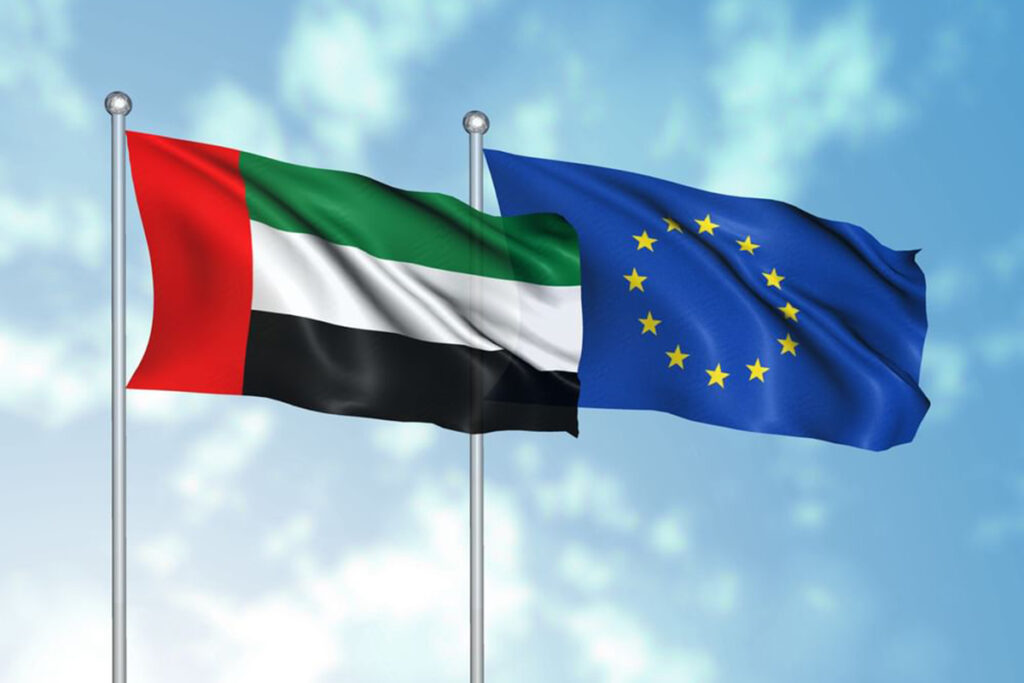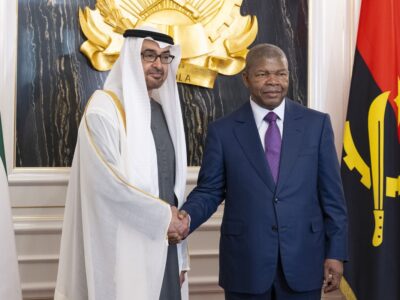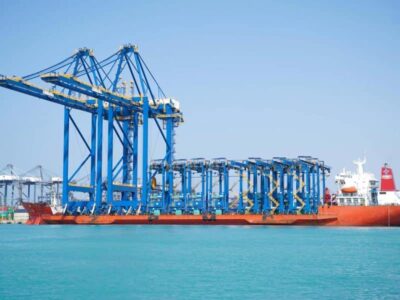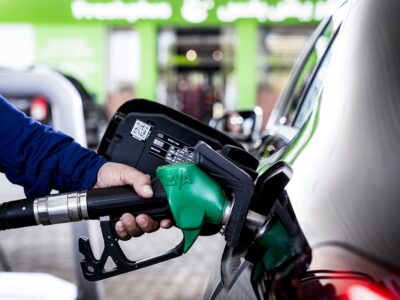The United Arab Emirates and the European Union launched trade negotiations last month, just days after U.S. President Donald Trump announced sweeping “Liberation Day” tariffs — timing experts say reveals profound shifts in global trade alignments.
The negotiations, announced in early April following a conversation between European Commission President Ursula von der Leyen and UAE President Sheikh Mohamed bin Zayed, mark the first time the UAE has pursued a bilateral trade agreement with the EU outside of the GCC framework — a structure that has governed EU-Gulf economic relations since the 1980s.
“The EU-UAE trade talks were announced on April 10, which is almost to the day, a week after Trump announced his famous Liberation Day tariffs,” Nicolas Michelon, Managing Partner at Dubai-based corporate geoeconomics consultancy Alagan Partners, told Arabian Business in an interview as anticipation builds for potential progress in the negotiations.
Breaking from Gulf tradition
This bilateral approach represents a significant departure from historical practice, where EU-UAE trade discussions were conducted within the broader EU-GCC framework. Those talks, which began in 1988, have been suspended since 2008, creating a nearly two-decade impasse in formal trade negotiations.
“Up until this written announcement, all the discussion for comprehensive economic partnership agreements, free trade agreements, call them what you want, between Europe and the UAE were essentially a function of Europe-GCC talks,” Michelon explained.
The UAE’s decision to move forward independently reflects both internal economic evolution and mounting external pressures, according to Dr Khalifa Al Suwaidi, Research Fellow and Head of the Gulf-Europe Research Programme at the Anwar Gargash Diplomatic Academy.
“The UAE has outperformed most of its GCC counterparts when it comes to economic diversification. Mostly in part recently due to its emphasis on promoting trade and connectivity and also digital governance,” Al Suwaidi told Arabian Business.
“In terms of the GCC, it has led somewhat to a mismatch, not a clear-cut divergence, when it comes to the economic priorities of the individual states.”
Tariff pressures driving new alliances
While Gulf economies are largely shielded from the direct impacts of the April 2 U.S. tariff measures due to their trade structure, they face significant indirect consequences as key logistics hubs. The UAE, which has positioned itself as a global logistics centre, is particularly exposed to these ripple effects.
“Even though most GCC economies will be spared all retaliatory tariffs, they are still being impacted by indirect consequences on transit trade,” Michelon said.
“The UAE, which is particularly aggressively positioned as a global logistics hub, they need to sign new free trade agreements because they need to cushion those blows that are coming as we speak.”

The timing also reflects deeper geopolitical shifts following the Munich Security Conference earlier this year, where U.S. Vice President JD Vance delivered sharp criticism of European defence spending that many interpreted as signalling broader changes in transatlantic relations.
“Vice President JD Vance basically lectured Europe on the fact that it’s forgotten its ways, that it’s not investing enough in itself, that the U.S. cannot be picking up the tab every single time and come at Europe’s rescue,” Michelon added.
“Europe started to understand, it really started to sink in for European leaders, that this is going to be valid for trade and economic matters.”
Complementary strategic interests
The EU is already the UAE’s second-largest trading partner, accounting for 8.3 per cent of the UAE’s total non-oil trade, valued at $67.6 billion in 2024. The UAE, meanwhile, serves as the EU’s largest export destination and investment partner in the Middle East and North Africa region.
For both parties, the agreement’s core focus areas reflect their complementary strategic needs. The central pillars of the negotiations include renewable energy, green hydrogen, critical raw materials, advanced manufacturing, healthcare, logistics, and artificial intelligence.
“Europe has an extremely ambitious decarbonisation agenda and Net Zero targets… extremely ambitious. Some would call it totally unrealistic and somewhat punitive for its own companies,” Alagan Partners’ Michelon noted.
“It necessitates that Europe’s member economies must import clean hydrogen massively from high-capacity producers like the UAE, which is really ramping up itself as a clean hydrogen power in the region.”
For the UAE, the interests lie in diversifying an economy still heavily dependent on hydrocarbon revenues. “For the UAE…. it’s all about diversification of its own economy, scaling up its tech sector by securing easier access to European know-how for tech and easier access to European markets,” Michelon explained.
The talks fit within a broader policy trajectory for the Gulf nation, which has aggressively pursued similar agreements with key global partners since the COVID-19 pandemic disrupted traditional trade patterns.
“The UAE has been signing an entire series of comprehensive economic partnership agreements with various countries. To date, the UAE has 27 agreements, six of which are in full effect, that includes with India, Indonesia and Turkey, so three major manufacturing powers and the rest of those agreements are still pending ratification,” Michelon explained.
If concluded, the EU agreement could be the UAE’s largest since its landmark 2022 deal with India — underscoring its strategic importance for Emirati economic planners.

Changing EU approach
The trade talks also reflect an evolution in the EU’s approach to Gulf relations, according to Dr Al Suwaidi. Where previous negotiations often stalled over the EU’s insistence on governance and human rights conditions, economic pressures are creating a more pragmatic approach.
“I feel the EU right now, given the UAE’s unflinching stance when it comes to prioritising trade over prescriptive norms of engagement… The fact that the EU now is pushed into a corner strategically when it comes to trade renders it incapable of projecting in many cases those values,” Al Suwaidi said.
In her announcement last month, President von der Leyen emphasised the EU’s “strong track record of delivering high-standard trade agreements and building partnerships based on open trade and mutual benefit,” while noting that Commissioner Maroš Šefčovič would soon return to the UAE to advance the negotiations.
Potential catalyst for broader talks
The success of the EU-UAE talks could potentially reignite broader EU-GCC discussions, though experts caution that political considerations may complicate negotiations with some regional partners.
“I do believe that these bilateral talks between the UAE and the EU could jump start the entire EU-GCC discussion,” Michelon said.
“We could see more bilateral agreements between GCC member economies and the EU, again in the broader context of global geo-economic realignment.”
However, he noted that political factors will create variable levels of difficulty.
“With Qatar, obviously there are still some political issues hanging in the balance,” Michelon said.







